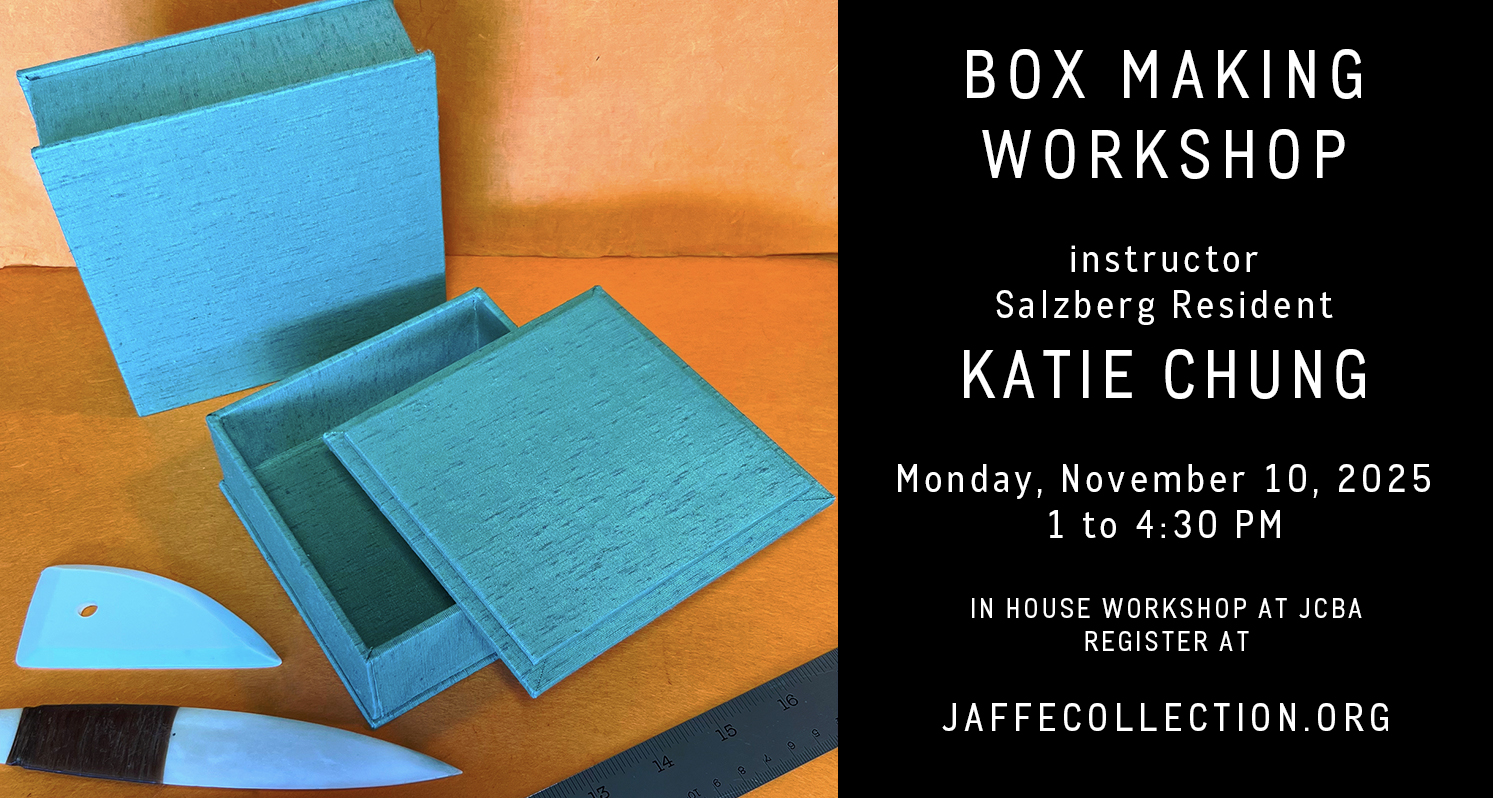Upcoming Workshops


Archival boxes are used to hold precious objects such as books, prints, and artifacts. Learn how to build an archival lidded box in this one-day intensive workshop led by JCBA Salzberg Resident artist Katie Chung. Students will leave this workshop with a beautifully crafted box and the fundamentals of constructing a box using traditional book arts techniques. Prior book making experience is strongly encouraged. Materials and supplies will be provided.
$125 general public / $115 FAU faculty & staff and students from other institutions / $90 FAU students. Advance registration is required for all JCBA workshops. To register, email JCBA Director John Cutrone at jcutrone@fau.edu. Class limit: 6.
Katie Chung is an artist that works in illustration and sculpture to investigate her identity as a second generation Korean American. She uses book arts to frame her imagined heirlooms made from utilitarian supplies found in her mother’s dry cleaning shop. Chung has worked in artist book production, publishing, and teaching since 2015. She is a current Helen M. Salzberg Artist in Residence at the Jaffe Center for Book Arts. https://www.katiechung.com